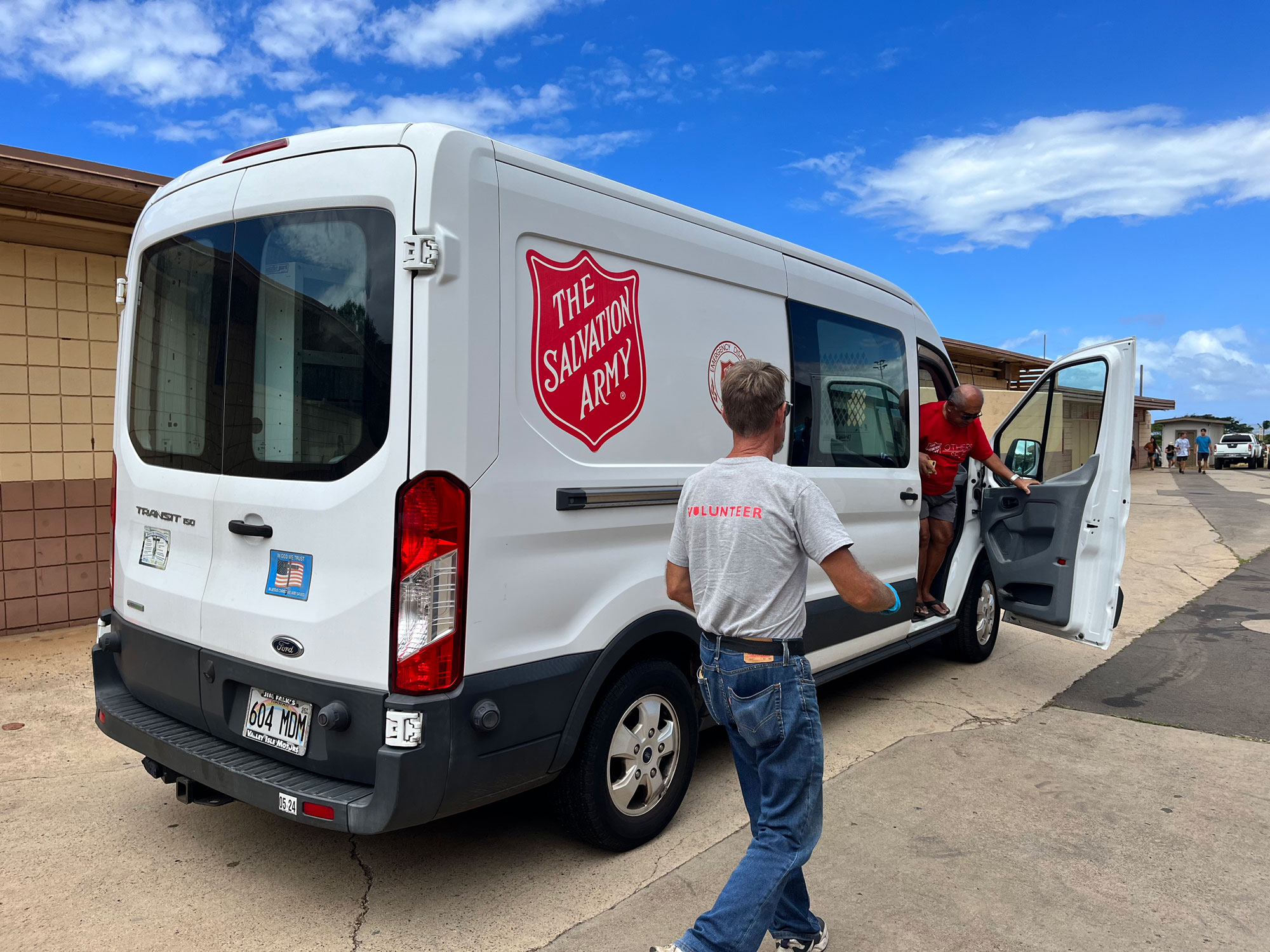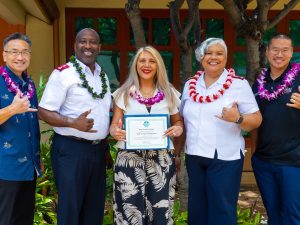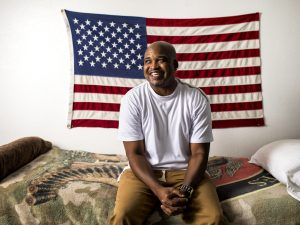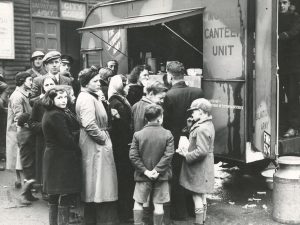Volunteers give emotional and spiritual care (ESC) to those in the greater Lahaina area following devastating fires.
Since the devastating West Maui wildfires that leveled the historic town of Lahaina and burned much of the Central Maui town of Kula in August, The Salvation Army has been on the ground providing aid to thousands of residents displaced by the blaze, with the efforts led by trained Salvation Army officers (pastors) and staff largely supported by volunteers on the frontlines of service.
“Everyone in the community has been touched by this tragedy and wants to help, but they need to be introduced to the right area of need,” said Maui Incident Command Volunteer Coordinator and Finance and Administration Deputy Stacy Dertien. “It’s powerful for The Salvation Army because we can be the link that facilitates the connection between the people that want to help and the people that need the help.”
Perhaps the most impactful volunteer opportunity is providing Emotional and Spiritual Care (ESC) for survivors, Dertien said—when volunteers offer a listening ear to help them navigate logistical issues as well as prayer and words of comfort, holding space for their grief.
“That’s really the major need,” she said, adding that The Salvation Army has been looking for local volunteers with high emotional intelligence who are comfortable with supporting those in crisis in the coming months.
The ESC team is comprised of a variety of caring community members, and includes trained hospice volunteers, survivors of other past fires, family members of Salvation Army officers, Salvation Army Advisory Board members, local pastors, retired military members, a former collegiate recreation department head, a father of 8 and a retired special education teacher.
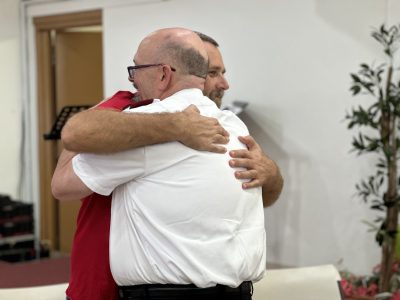
The ESC teams are The Salvation Army’s eyes and ears on the ground, said Nicole Kanne, Emergency Services Director in the Southwest Division who was activated to serve as Public Information Officer in Maui. They collect vital information from survivors to make needs assessments for long-term recovery for affected families on Maui.
“We know that housing, groceries and transportation are among the most critical needs at this time, and our disaster response teams are working in partnership with local vendors to come up with meaningful, lasting solutions for survivors,” she said.
Lahaina, with a population of just over 9,000, accounted for 80 percent of Maui’s tourism and was the economic and tourism hub as well as a place of great historic and cultural importance to native Hawaiians.
King Kamehameha III designated it the capital of the Kingdom of Hawaii from 1802–1845, and the town was also a major 19th century whaling and shipping hub. The fire destroyed priceless antiquities and cultural sites, but the symbolic loss is also devastating. So too, is the loss of dozens of multigenerational homes.
“The Salvation Army is navigating many cultural issues, including ministering to multigenerational families who have endured great loss. We’re supportive of efforts to protect their lands, homes, families and identities here on the island,” Kanne said, noting The Salvation Army’s own loss of the Lahaina Lighthouse Corps (church) building. “Our Lahaina Lighthouse located in the heart of Lahaina Town was a beacon of hope for residents in the past, and we intend to continue to be present in the community, just as we have since 1895. We are all in this together.”
Rita Lei Medina is a local resident and survivor as well as the Family Services and Administration Assistant at The Salvation Army Lahaina Lighthouse Corps. She said the offering of prayer for strength and courage from the ESC team has been helpful and uplifting.
“It truly did lift the burden of intense sorrow and helped some to realign themselves with their inner strength,” she said.
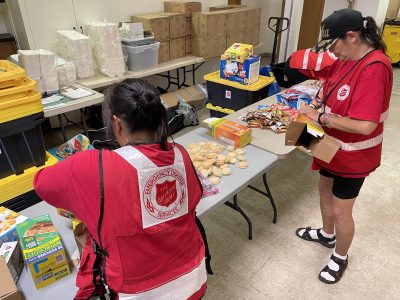
Cultural issues are at the forefront for many survivors, who are intentionally seeking support from native Hawaiian ESC team members, some of whom lost their own homes. Being able to express their grief to those who have an innate understanding of the spiritual, historical and cultural loss of Lahaina is paramount for many survivors who are also native Hawaiians.
“The sacred significance of ‘Lele,’ or Lahaina as she’s known today is that we live and walk the grounds of our kupuna, our cultural ancestors, whom many today are tied to genealogically,” said Lei Medina.
“One still senses the deep landscape and character of days, sites and mo’olelo [stories] of old. Therefore, we must continue to honor this place and space in good stewardship and preservation…in these tremendously difficult times, as if the amount of personal loss wasn’t heavy enough, the deep concern about the future of our town is will she be embraced and revered as we rebuild?”
Kanne said while the collective emotional and physical damage from the fires is impossible to quantify, Hawaii’s spirit of Aloha and sense of ohana (family) has been evident from the beginning of the response.
“Everyone here is pitching in, regardless of what personal losses they’ve experienced. Giving hugs, volunteering, donating items, restaurants providing food and meals,” she said. “It’s amazing.”
Do Good:
- Give to help the disaster response at Hawaii.SalvationArmy.org. Text HAWAIIFIRE to 51555 to donate now.
- See how The Salvation Army fights disaster.
- Listen in to the Do Gooders Podcast Episode 105: How The Salvation Army responds to disaster with John Berglund for a first-hand take on how the organization prepares and responds.








